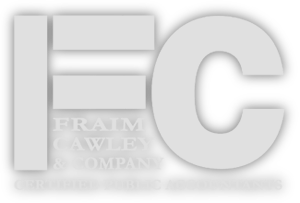Bookkeeping is the bane of most business owners’ existence. But ignoring our books or putting them on the back burner can be one of the costliest mistakes we ever make.
A few years back, SCORE conducted a poll asking entrepreneurs what was the worst part of owning a small business. A whopping 40% answered bookkeeping and taxes.
That survey wasn’t an anomaly. In that same year, TD Bank asked over 500 business owners that same question, with 46% listing bookkeeping as their least favorite task. A 2012 survey by Mavenlink had 41% of respondents giving that same answer.
So, it’s no wonder that so many small businesses put it off for as long as possible. If a person despises doing something, it’s not exactly going to jump to the top of their to-do list. Unfortunately, this can have a severely negative effect on a business’s performance.
So, what can be done to fix it? Short of miraculously developing a passion for accounting, what are some simple tricks to reduce the pain around bookkeeping?
1. Understand the purpose.
One thing that has helped a lot of our clients is understanding why they’re doing their books in the first place. To be able to file their taxes? To provide records to a bank for a loan? To give something to their annoying CPA to get them off their backs?
Sure, all of those things are real reasons. But they are far from the primary purpose that bookkeeping serves.
Accounting is called “the language of business.” A business’s books are the truest reflection of its operations. They show the successes, the failures and the opportunities. They provide data on cash flow, receivables turnover, seasonality, and the profitability of different products and services. They give a snapshot of the business’s performance – all backed up by cold hard data. As a friend of mine bluntly put it, “If you don’t know your books, you don’t know your business.” They can and should be the cornerstone for almost any major business decision.
If we view our books as the invaluable tool they are, then the process of creating them will become a bit less painful. And if we accomplish that, then we’ll be much more likely to keep up with them.
2. Review the reports.
This dovetails with the previous point, but at our firm, we are often amazed at how often a client tells us their books are completed, only for it to be clear they have not once looked at the reports. And we’re not talking about minor errors, but rather major items, such as “uncategorized expenses” of $200,000 on the profit and loss or a bank account that is supposedly $50,000 in the negative on the balance sheet. The client hates bookkeeping, so they did all of the data entry (as they felt required to do) but then were done with it.
But they are really short-changing themselves by doing that. They’re doing all of the hard work and receiving none of the reward. Having the reports to review and analyze is what’s interesting (relatively speaking) about the entire process. These reports give us the ability to better manage our businesses. We need to take advantage of that.
3. Take small bites.
Admittedly, even with all of my encouragement, people are only going to “enjoy” their bookkeeping just so much. The tendency will still be to put it off for as long as possible. But beyond losing the valuable information from their reports during that period, that sort of procrastination will also drastically decrease the likelihood of the task ever getting done at all.
That’s the biggest trap we see people fall into. They keep delaying doing their books, and the amount of work snowballs. Spending 20-30 minutes doing something you dislike is bad enough. Spending an entire day or more catching up seems unbearable.
So, do it in small bites. Input your transactions monthly or, ideally, weekly. It takes very little time, you’re actively managing and tracking your finances, and it prevents the work from building up on you.
4. Utilize software.
Accounting software has come a long way in the past decade. Many services tie directly into bank and credit card accounts – downloading all of the transactions into the accounting program. Not only that, but they learn over time to which expense category each vendor is tied, which further automates the majority of the process.
We don’t have to sit down with a pencil, paper and abacus. We should utilize all of the tools available to us to streamline the process.
5. Hire someone else.
If nothing else works, just hire someone to do it. We often tell our clients, “We don’t care who does it. You can do it, we can do it for you, or you can hire someone else to handle it. If doing it ourselves is simply not working, we may need to delegate the work to someone else. What matters is that it gets done.”
The information generated by your company’s books is too valuable to delay or ignore. The health of your business is ultimately at stake, and sticking your head in the sand or habitually procrastinating can be a fatal business mistake.
This article was originally published on Business.com.
Any accounting, business, or tax advice contained in this communication, including attachments and enclosures, is not intended as a thorough, in-depth analysis of specific issues, nor a substitute for a formal opinion, nor is it sufficient to avoid tax-related penalties.




